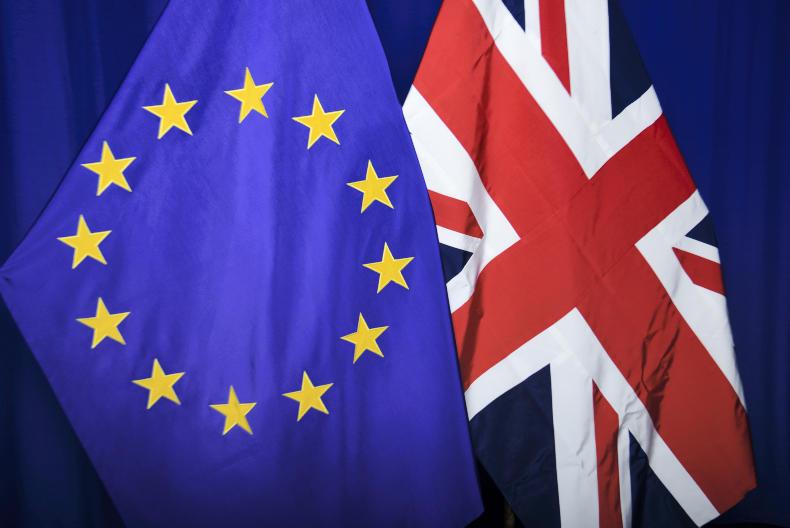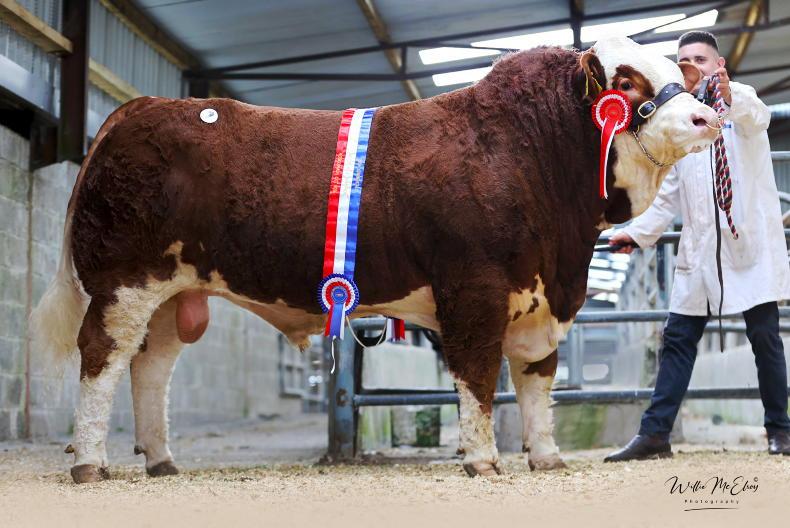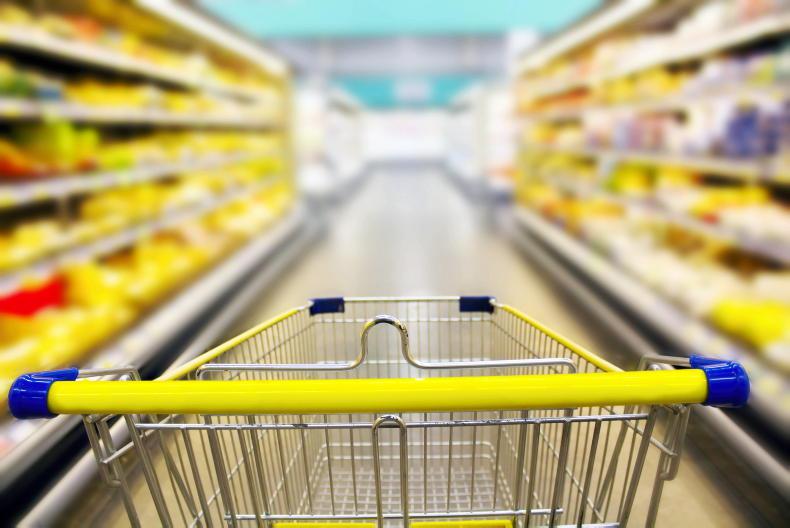The restoration of the regional government in Northern Ireland on Saturday has dominated the political news this weekend, but it will have minimal impact on farmers in the short term.
In the longer term it will have responsibility for shaping future agricultural policy in Northern Ireland following the UK’s departure from the EU. Even in this case, with the restoration agreement putting such a focus on climate change and the environment, it is clear that the regional government in Northern Ireland will have to operate within a UK framework.
Given that the EU green deal will be the basis for the next CAP, which looks like having a 5% budget cut, the retention of current budget for the duration of this parliament means that from a support perspective, Northern Irish farmers will be in as good if not better position than their southern counterparts for the next five years.
Brexit
Meanwhile, it is now less than three weeks until the UK leaves the EU. This has disappeared from the news because unlike the missed departure dates last year, it is now a virtual certainty. The withdrawal agreement has passed virtually unhindered through Westminster and is in the final stages of becoming law.
Of course, nothing changes in practical terms on 1 February because the withdrawal agreement provides for the UK to enter a transition period until the end of 2020 when a future relationship is negotiated. That means the real crunch point is the end of 2020 if the UK continues its policy of having a complete break at that point with a future trading agreement in place or not.
Withdrawal agreement compared to backstop
Much of last year was spent wrestling with a Northern Ireland backstop as part of the UK withdrawal agreement. The idea of a backstop was putting in place a mechanism that would take effect in the event of no deal.
However, the withdrawal agreement that governs the UK departure from the EU on 31 January has bypassed any idea of a backstop and moved to finalise a future trading relationship on the island of Ireland irrespective of any future trading arrangement between the EU27 and the UK.
The big difference after the end of this year will not be what is happening on the island of Ireland but what becomes of product processed either side of the border afterwards
It provides for Northern Ireland remaining aligned to EU standards and tariffs irrespective of what the rest of the UK does. That means that Northern Ireland can continue trading cross border as it does at present and the UK has also guaranteed unhindered access for Northern Irish trade with the rest of the UK. This has been politically controversial in that EU border controls would apply at points of entry to Northern Ireland from outside the EU (in the main Britain) in order to maintain an invisible border from a trading perspective on the island of Ireland.
Political but not market solution
In practice all this means that milk and lambs from Northern Ireland will be able to be processed south of the border as they are today irrespective of the outcome of the talks between the EU and UK on a future trading relationship from the end of this year. It also means that cattle and pigs from the south will be able to be processed in northern factories, as they are today.
The big difference after the end of this year will not be what is happening on the island of Ireland but what becomes of product processed either side of the border afterwards. Currently 90% of agri food processed on the island of Ireland is sold elsewhere, with Britain being the main outlet followed by the rest of the EU and a very small amount sold in wider global markets.
Future trading relationship
Many trade experts are suggesting a comprehensive FTA between the EU and UK is impossible in the time frame to the end of the year as is current UK government policy. If there is no or restricted access to the UK for exports from the Republic of Ireland, we can envisage less than a full welcome for Northern Irish milk and sheep coming south for processing.
The stated UK policy ahead of the March deadline last year was to create a generous quota for beef and dairy but not for sheepmeat. Similarly, the position on dealing with Irish imports to Northern Ireland was, as is the case with the withdrawal agreement, that they could move across the border unhindered. This means that there would be no practical obstacle to Irish factories transiting their produce for the British market through Northern Ireland, thereby avoiding any EU-UK border issues at Holyhead or Fishguard ports.
Impact on farmers in Britain
If Northern Ireland was to become a backdoor entry point to the rest of the UK for Irish exports, we can envisage farmers in Britain getting upset if this was having a negative impact on the market; especially if the trading relationship with the EU was such that they weren’t to get their produce on to that market.
The bottom line is that the withdrawal agreement that is the basis for the UK departure from the EU in less than three weeks maintains seamless trading on the island of Ireland. However, as 90% of agricultural produce leaves the island of Ireland, with half going to Britain, it doesn’t begin to address market access issues.
Read more
Bulging in-tray faces new DAERA minister
Direct payments guaranteed for 2020
The restoration of the regional government in Northern Ireland on Saturday has dominated the political news this weekend, but it will have minimal impact on farmers in the short term.
In the longer term it will have responsibility for shaping future agricultural policy in Northern Ireland following the UK’s departure from the EU. Even in this case, with the restoration agreement putting such a focus on climate change and the environment, it is clear that the regional government in Northern Ireland will have to operate within a UK framework.
Given that the EU green deal will be the basis for the next CAP, which looks like having a 5% budget cut, the retention of current budget for the duration of this parliament means that from a support perspective, Northern Irish farmers will be in as good if not better position than their southern counterparts for the next five years.
Brexit
Meanwhile, it is now less than three weeks until the UK leaves the EU. This has disappeared from the news because unlike the missed departure dates last year, it is now a virtual certainty. The withdrawal agreement has passed virtually unhindered through Westminster and is in the final stages of becoming law.
Of course, nothing changes in practical terms on 1 February because the withdrawal agreement provides for the UK to enter a transition period until the end of 2020 when a future relationship is negotiated. That means the real crunch point is the end of 2020 if the UK continues its policy of having a complete break at that point with a future trading agreement in place or not.
Withdrawal agreement compared to backstop
Much of last year was spent wrestling with a Northern Ireland backstop as part of the UK withdrawal agreement. The idea of a backstop was putting in place a mechanism that would take effect in the event of no deal.
However, the withdrawal agreement that governs the UK departure from the EU on 31 January has bypassed any idea of a backstop and moved to finalise a future trading relationship on the island of Ireland irrespective of any future trading arrangement between the EU27 and the UK.
The big difference after the end of this year will not be what is happening on the island of Ireland but what becomes of product processed either side of the border afterwards
It provides for Northern Ireland remaining aligned to EU standards and tariffs irrespective of what the rest of the UK does. That means that Northern Ireland can continue trading cross border as it does at present and the UK has also guaranteed unhindered access for Northern Irish trade with the rest of the UK. This has been politically controversial in that EU border controls would apply at points of entry to Northern Ireland from outside the EU (in the main Britain) in order to maintain an invisible border from a trading perspective on the island of Ireland.
Political but not market solution
In practice all this means that milk and lambs from Northern Ireland will be able to be processed south of the border as they are today irrespective of the outcome of the talks between the EU and UK on a future trading relationship from the end of this year. It also means that cattle and pigs from the south will be able to be processed in northern factories, as they are today.
The big difference after the end of this year will not be what is happening on the island of Ireland but what becomes of product processed either side of the border afterwards. Currently 90% of agri food processed on the island of Ireland is sold elsewhere, with Britain being the main outlet followed by the rest of the EU and a very small amount sold in wider global markets.
Future trading relationship
Many trade experts are suggesting a comprehensive FTA between the EU and UK is impossible in the time frame to the end of the year as is current UK government policy. If there is no or restricted access to the UK for exports from the Republic of Ireland, we can envisage less than a full welcome for Northern Irish milk and sheep coming south for processing.
The stated UK policy ahead of the March deadline last year was to create a generous quota for beef and dairy but not for sheepmeat. Similarly, the position on dealing with Irish imports to Northern Ireland was, as is the case with the withdrawal agreement, that they could move across the border unhindered. This means that there would be no practical obstacle to Irish factories transiting their produce for the British market through Northern Ireland, thereby avoiding any EU-UK border issues at Holyhead or Fishguard ports.
Impact on farmers in Britain
If Northern Ireland was to become a backdoor entry point to the rest of the UK for Irish exports, we can envisage farmers in Britain getting upset if this was having a negative impact on the market; especially if the trading relationship with the EU was such that they weren’t to get their produce on to that market.
The bottom line is that the withdrawal agreement that is the basis for the UK departure from the EU in less than three weeks maintains seamless trading on the island of Ireland. However, as 90% of agricultural produce leaves the island of Ireland, with half going to Britain, it doesn’t begin to address market access issues.
Read more
Bulging in-tray faces new DAERA minister
Direct payments guaranteed for 2020









SHARING OPTIONS